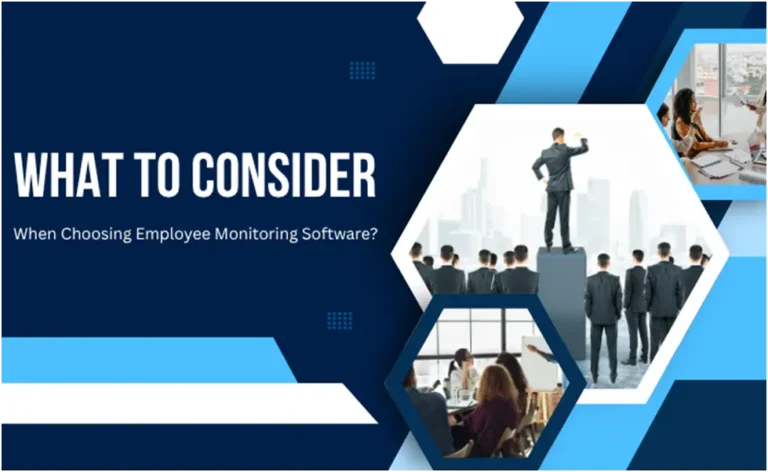Small Business Insurance Myths That Could Cost You
Dispelling the Most Common Small Business Insurance Myths
It’s far too easy for myths and misinformation to infiltrate the world of small business insurance. The assumption that insurance is only necessary for large corporations is widespread and costly. Many small business owners believe they’re “too small” or that their operation is too low-key to require a dedicated insurance policy. In truth, risks don’t discriminate based on size; even the tiniest ventures can suffer major setbacks from accidents, property loss, or lawsuits. With resources like https://www.thehartford.com/small-business-insurance making policies accessible for small businesses, there’s no excuse for exposing yourself.
Another deeply rooted myth is that personal insurance (like home or auto policies) protects business activities conducted from your residence or personal vehicle. Unfortunately, most personal insurance will explicitly exclude claims arising from business operations. Many owners don’t discover these gaps until a denied claim forces them to bear sudden, potentially business-ending expenses. Securing an insurance policy that fits your business’s specific needs is affordable and critical, no matter how modest your operation might seem.
Why Even the Smallest Businesses Need Coverage
It’s a common misconception that side hustles, microbusinesses, or freelance gigs don’t need business insurance. Many entrepreneurs underestimate their exposure, thinking the scale of their operation somehow reduces risk. However, data from the U.S. Small Business Administration reveals that roughly 25% of businesses that endure a major disaster close for good. That means one in four businesses never recovers when something goes wrong, even those run from a laptop in a kitchen or a single rented office.
Consider a freelance designer delivering work that misses a client’s deadline, or a food vendor whose soup spills and injures a customer. These aren’t edge cases; these are real-life scenarios that happen daily and can lead to lawsuits, property damage, or loss of costly equipment. Without the proper insurance, repairs, medical bills, or legal fees land squarely on the shoulders of the owner, often far exceeding what a basic insurance premium would have cost. Business insurance isn’t just for storefronts or those with employees—it’s a necessity for anyone exchanging goods or services for payment. This is especially true for entrepreneurs looking to expand internationally or register a company in Singapore, where legal compliance and financial protection are essential. Having the right coverage safeguards your business from unexpected setbacks and supports long-term stability.
Liability Issues That Catch Owners By Surprise
The world of liability is broader—and riskier—than many business owners realize. While general liability is often considered coverage for slips and falls on physical property, today’s businesses face a range of new exposures. For example, an unhappy client could sue for a copyright issue linked to your marketing, or a competitor might claim you engaged in false advertising. The digital age has introduced even more risk, as online reviews, social media posts, and website content open the door to potential libel or slander claims.
Many owners are caught off guard when a contract or a landlord requests proof of insurance before agreeing to do business. The proper certificate can mean missing out on lucrative projects or losing to better-prepared competitors. Far from being a mere formality, comprehensive insurance is a tool you can use to reassure clients and partners. It signals that you’re reliable, committed, and positioned to weather storms, both literal and figurative.
The True Cost of Underinsuring Your Operation
Attempting to save money by buying the cheapest policy—or skipping coverage entirely—can have devastating financial consequences. Recent research shows that about 75% of small businesses are underinsured. This doesn’t just mean lower premiums in the short term; it can mean devastating out-of-pocket losses when a claim falls outside your coverage. Owners may be responsible for anything above and beyond their policy limits or for entire categories of incidents they mistakenly thought were covered.
Routine threats such as equipment damage, break-ins, or burst pipes cause small companies thousands of dollars in yearly losses. In sectors like construction or consulting, lawsuits can easily exceed $50,000, even for relatively minor claims. Most small businesses can’t absorb such blows. The prudent path is to work with an insurance professional to identify precisely where your vulnerabilities lie as your business changes. Regular, proactive review is the antidote to being in that unlucky 75%.
Types of Coverage Every Owner Should Know About
- General Liability:Covers claims of bodily injury, property damage, and even reputational harm. It’s the most frequently purchased policy and forms the foundation of most coverage plans. Many commercial landlords and clients require it before signing leases or contracts.
- Property Insurance:Protects the physical assets your business relies on—buildings, computers, equipment, supplies, and sometimes lost income due to disaster. Even in a home-based business, inventory or homeowner’s insurance often doesn’t fully cover inventory or computers.
- Professional Liability:Provides defense costs and settlements if your professional advice or service results in a client’s loss. Especially critical for consultants, accountants, legal professionals, designers, and other service-based contractors.
- Workers’ Compensationis typically required by law for any business with employees. This policy covers medical expenses and wage replacement when workers are injured on the job.
Additional protection, such as cyber liability (essential if you handle sensitive customer data), commercial auto, or product liability, may be warranted depending on your business. For a breakdown of coverage types relevant to specific industries, the Insurance Information Institute’s business guides offer clear pointers, making it easy to evaluate which policies are right for you.
The Latest Trends and Challenges for Small Business Insurance
In recent years, significant shifts have occurred in the risks that small businesses face. Cybercrime has become one of the fastest-growing reasons for insurance claims, with attacks on small businesses skyrocketing. As highlighted in the latest business insurance market trends, small companies have become prime targets because their defenses are often more limited than those of larger rivals. As a result, more owners are adding cyber coverage or boosting their existing protection to respond to these growing threats.
Extreme weather events and supply chain disruptions due to global events or pandemics have also pushed owners to reexamine their business interruption and property coverage. Today’s insurance landscape offers increased flexibility through “bundled” or modular policies, helping businesses cover new risks while simplifying their documentation and costs. The consensus among experts is that insurance products will become more tailored to fit each business’s evolving profile, not just one-size-fits-all templates.
How To Avoid Costly Mistakes When Choosing Insurance
- Ask targeted questions:Clarify what’s covered, what isn’t, and what conditions or actions could void your policy. This is especially important with cyber, professional, or industry-specific coverage.
- Compare multiple plans:Don’t just accept the first quote. Evaluate options for coverage limits, deductibles, exclusions, and support services. Costs can vary widely for near-identical products.
- Review yearly:Growth, diversification, or new hires should always trigger a checkup. Regular reviews ensure your coverage fits your present situation, not just your past.
- Get expert insight:Consult an experienced agent or insurance consultant. Their industry knowledge can illuminate risks you might overlook and help you navigate complex policy jargon.
Being thorough from the start and revisiting your protection annually is the surest way to avoid costly insurance mistakes. It builds a solid foundation for your business’s future growth.
Practical Steps for Staying Protected As Your Business Grows
Your insurance strategy should evolve right alongside your business goals. Anytime you roll out a new product, hire more staff, or invest in new technology, update your insurance. Maintain records of business activities, implement safety training, and stay current with state and federal legal requirements—all these practices can reduce your risk and sometimes even lower your premiums.
Tap into reliable sources, like the Insurance Information Institute, to arm yourself with the latest on risks and coverages. Engage with peer networks and business associations to discover best practices for insurance in your industry.
While insurance might sometimes feel like an afterthought, it’s the foundation for bold, confident business growth. Being proactive, staying informed, and conducting regular reviews set resilient businesses apart. When you prioritize the proper protection, you safeguard your business, long-term reputation, and peace of mind.
Also Read-How to Build a High-Performance Leadership Team in a Private Equity Environment






